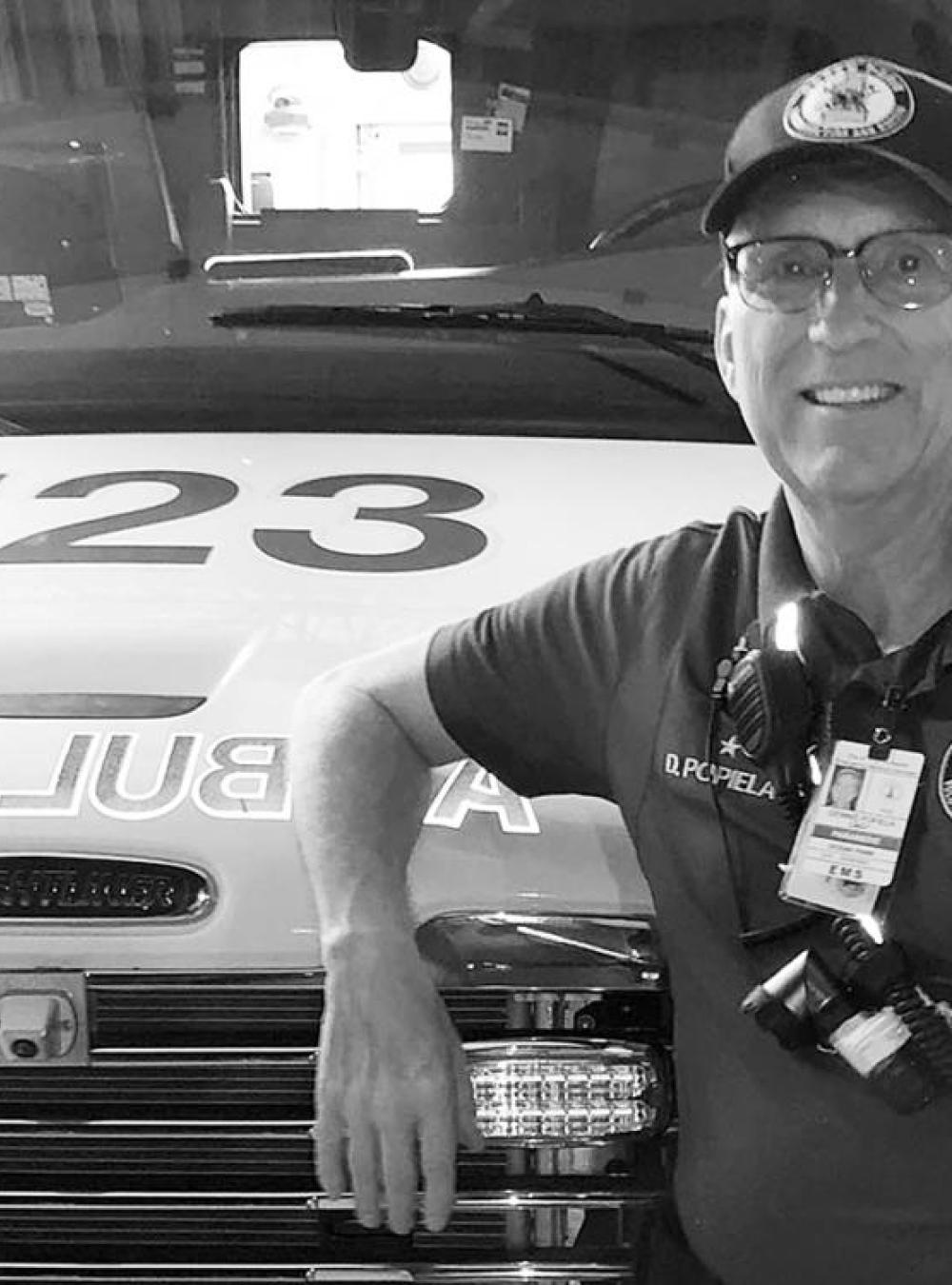Longtime volunteer paramedic Dennis Popiela knows emergency response protocols inside and out. But COVID-19 has changed everything—from the way he approaches the scene of an accident to how he interacts with those he’s trained to help.

In the Community: A Paramedic Confronts the Pandemic
MITRE employees take our mission of solving problems for a safer world to heart—and to their communities. Our "In the Community" series highlights the many ways our people make a difference in neighborhoods across the country and around the globe.
Select stories feature employees lending their time, talent, and heart to the fight against COVID-19. Seasoned paramedic Dennis Popiela talks about how the coronavirus is changing emergency response practices for both patient and responder.
I’ve been a volunteer paramedic in Virginia Beach for 11 years. Ours is the largest volunteer-staffed Emergency Medical Services (EMS) system in the U.S. Almost 600 volunteer members staff ambulances and medic cars for basic and advanced life support emergency response. When you call 911—24/7—almost everybody who shows up is a volunteer. COVID-19 has changed the way we work.
How Virginia Beach Responded
It was scary when it came to this virus because we didn’t know how people would respond. With a lot of the volunteers out of work, they’re responding in even greater numbers.
We deal with people who have infectious diseases every day; it’s heightened now because COVID-19 is so infectious. We have extra people on call, and we’re scrounging to get equipment to protect ourselves. We keep distance, minimize the number of us who see patients, and often talk from the door, which is strange for us. And we’re racing to the hospital even faster—still safely, of course.
New Protocols Daily
Our protocols change almost every day now. We worry about aerosols in various treatments for people with breathing problems. They’re prohibited because they generate aerosols in the atmosphere—and there’s respiratory danger with COVID-19. If someone’s asthmatic, we can’t give them a breathing treatment. Or if someone’s having difficulty breathing, we can’t use what we call the bag valve mask. The best we can do is give them some oxygen.
The other big change since COVID-19 is you’re alone more because we’re reducing the number of people at a scene. You think about how working alone might impact the quality of care, and you feel helpless. You’re not able to do what you know would bring patients relief.
Innovating in the Field
After COVID-19 began, I had a patient with asthma. We got the call—the most urgent calls always come at 3:30 in the morning. She was turning blue. What’s frightening is that the things we’d normally do, we couldn’t. We thought we were going to lose her.
But we used the medications we could, got a little inventive in how we positioned her, and calmed her. She was panicked because she knew what was next if it didn’t work: We were going to have to intubate her.
Why I Do It
Something I love about being a paramedic is that we do things doctors do. The difference is we’re doing it in the street. When it comes time to put a tube in your throat, down to your lungs—it’s just us and doctors who do that.
Another reason I volunteer is to teach younger people and be a mentor. You work with people who don’t know what they want to do with their life, and the next thing you know, they’re in college becoming engineers and graduating with masters’ degrees. That’s been really gratifying.
I'd like to add that Civic Time [MITRE’s employee benefit of 40 hours of paid time each year for volunteering] has given me flexibility to perform this work. It’s good corporate civic responsibility on the part of MITRE that allows me to do this.
—by Dennis Popiela, as told to Aishia Caryn Freeman